‘One Life’ shows how perseverance makes the impossible possible
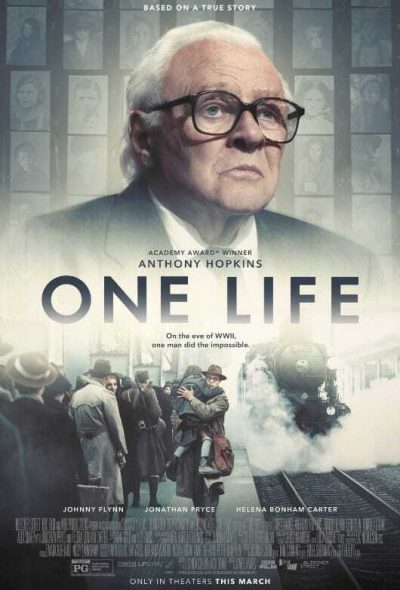
“One Life” (2023 production, 2024 release). Cast: Anthony Hopkins, Helena Bonham Carter, Lena Olin, Johnny Flynn, Jonathan Pryce, Marthe Keller, Alex Sharp, Romola Garai, Juliana Moska, Samuel Finzi, Martin Bednar, Frantiska Polakova, Anna Darvas, Jonathan Tafler, Samantha Spiro, Adrian Rawlins, Ffion Jolly. Director: James Hawes. Screenplay: Lucinda Coxon and Nick Drake. Book: Barbara Wilton, If It’s Not Impossible…The Life of Sir Nicholas Winton. Web site. Trailer.
Over the years, the written records of his life and work had piled up in his home to such a degree that there was almost no available space in his study. In some ways, he had almost become a hoarder, a subject of concern for Grete. And, because of this and his scattered, often-anxious demeanor, she had come to believe that there were unspoken aspects of Nicky’s past that were troubling him and that he was unwilling to address. She finally gave him an ultimatum to clean up his office when she was about to embark on a trip out of town, a task that he undertook begrudgingly and with a certain amount of dread.
So what was making Nicky so mysteriously angst-ridden? In recent times, he had been reflecting back on an audacious project he launched in 1938, a time when the winds of World War II were beginning to blow with ever greater force. And, as he began to sort through the voluminous papers in his study, this action brought the memories of that time flooding back to him, almost as if he were reliving that time of his life all over again.
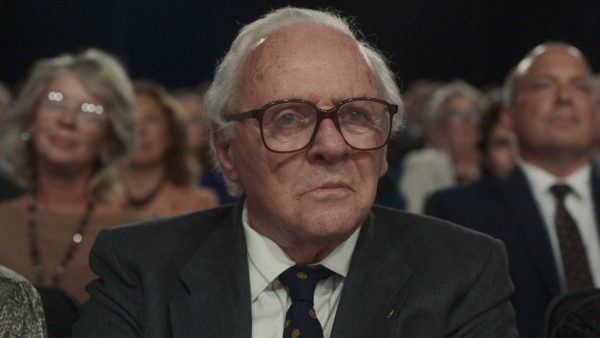
At that time so many years ago, Nicky’s younger self (Johnny Flynn) began work on a plan to help children flee Czechoslovakia as the threat from Adolph Hitler’s Third Reich began to intensify. Shortly before he undertook this mission, Germany “annexed” the western Czechoslovakian region of the Sudetenland, an appeasement proposal that Britain, France and Italy believed would help to forestall war on the continent. However, these European powers were duped by the German dictator, and this annexation was the first step toward the Nazi invasion of the country and the eventual onset of open conflict.
When this annexing occurred, countless refugees (many of them Jewish) fled the Sudetenland into still-sovereign areas of Czechoslovakia, most notably the City of Prague and evacuee camps on its outskirts. But this mass flight to freedom put a strain on the nation’s resources, and hopes for helping escapees leave the country grew progressively dim. Indeed, how could these individuals make their way to safety? And how could they be ignored?
Outsiders, such as members of the British Committee for Refugees from Czechoslovakia, both on the ground in Prague and back home in London, sought to provide assistance, but the deck was stacked against them. However, when Nicky heard of their plight, he couldn’t let himself stand idly by. He felt compelled to travel to Prague to get involved, jeopardizing his career and possibly his life. As a descendant of German Jewish ancestors who fled their homeland in the run-up to World War I, Nicky believed he had to act, no matter what the cost might be, as events began to escalate, threatening the well-being of so many innocent people.
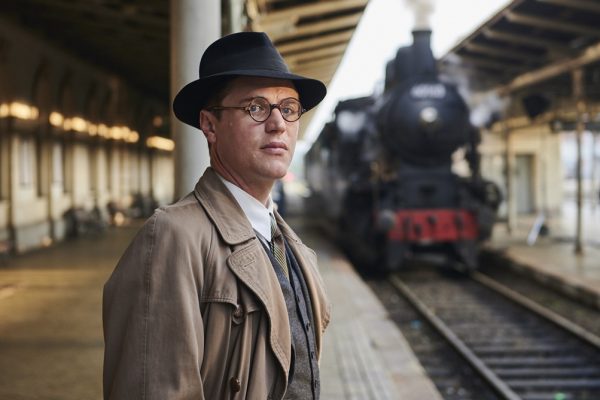
Once in Prague, Nicky saw the deplorable conditions of the camps, where refugees were starving and becoming susceptible to devastating illnesses. He believed that something had to be done to alleviate their suffering. Even if he couldn’t get the adults out of Czechoslovakia, he was determined to come up with the means to aid the children. But, despite his zeal to accomplish this, he was facing an uphill battle, and his BCRC colleagues, Trevor Chadwick (Alex Sharp), Doreen Warriner (Romola Garai) and Hana Hejdukova (Juliana Moska), didn’t offer much hope. What’s more, despite Nicky’s Jewish ancestry, he was strongly cautioned by a Prague rabbi (Samuel Finzi) that he should not attempt to undertake something he couldn’t finish, words that rang in the young humanitarian’s head at the time and for many years thereafter.
Specifically, Nicky’s collaborators were convinced that the organizational efforts required to launch the evacuation program were unmanageable. The organizers faced resistance from a reluctant British bureaucracy, intolerant prejudicial attitudes at home and difficult border-crossing obstacles in their attempts to arrange protective train transport across Europe to secure the safety of the young refugees. But Nicky would not allow himself to be deterred.
He set about developing plans for the evacuation on the ground in Prague, interviewing escapee candidates and their families and developing lists of those in the greatest need of assistance. At the same time, he contacted his mother, Babi (Helena Bonham Carter), back in London to intercede on his behalf with British government officials. Even though she was concerned about Nicky journeying to Prague in the first place, she quickly came around to his way of thinking when he explained his reasoning, a rationale based on the experience of their own immigrant ancestors. Nicky also knew that she could be quite headstrong and persuasive when needed, so he believed that she was the perfect homeland-based spokesperson to make his case to English officials, many of whom he believed were dragging their feet when it came to the plight of Jewish Czech refugees.
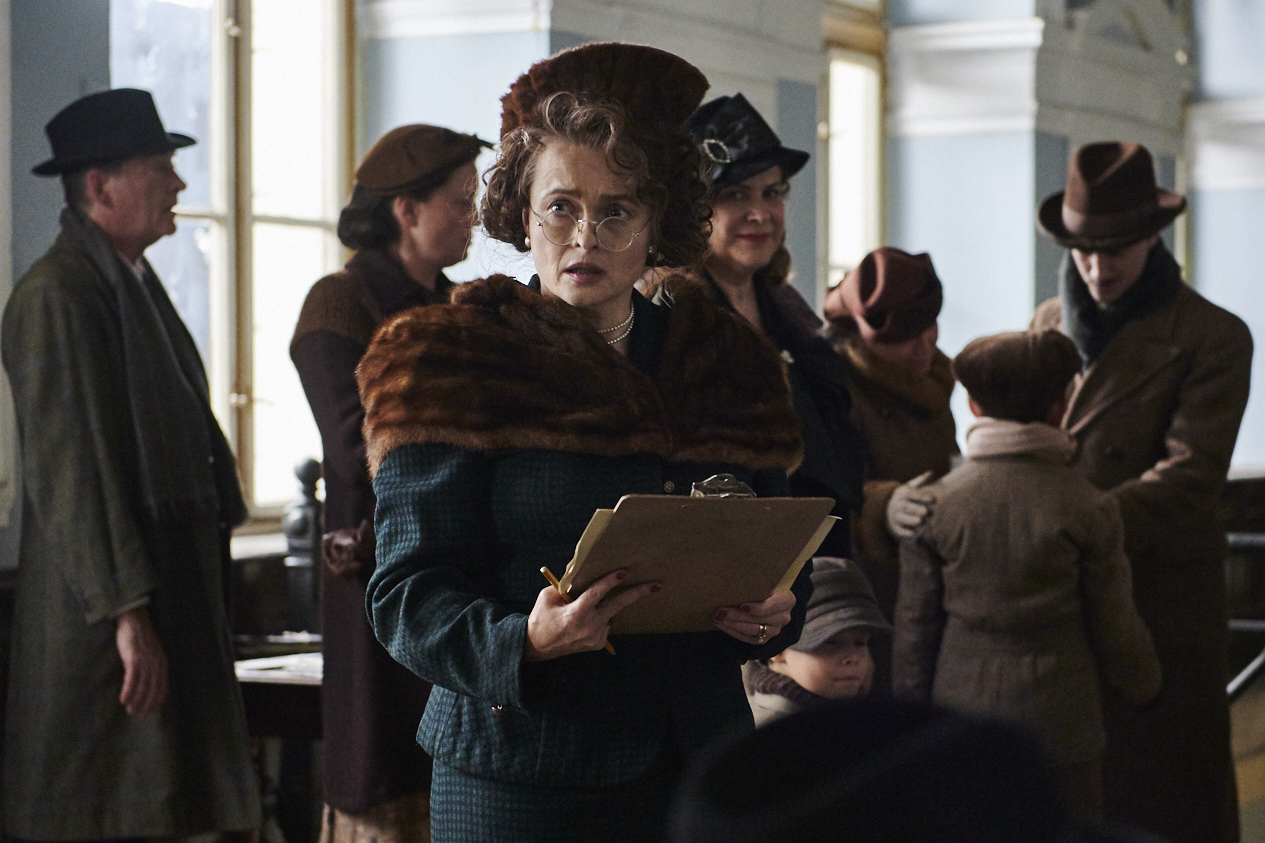
The tireless work of Nicky and his Prague-based colleagues, along with the steely determination of his mother, paid off. Over the course of the next year, they managed to secure freedom for 669 children, most of them Jewish. In many respects, he became the English counterpart of Swedish diplomat Raoul Wallenberg and German industrialist Oskar Schindler, both of whose comparable efforts saved the lives of thousands of Jews. But, for as much as Nicky and his peers accomplished, years later, he felt guilty that he was not able to do more, especially once the war began with Germany’s invasion of Czechoslovakia and attack on Poland in 1939. This remorse weighed heavily on him, even 40 years later. And his efforts at cleaning up his home study only served to remind him further of what he perceived as his “failures.”
However, while doing his long-overdue housekeeping, Nicky’s fortunes and outlook began to change. The story of the British effort to assist the young refugees – although a big deal at the time it took place – had largely been forgotten by the 1980s. And, along with it, the humanitarian work of Nicky and his colleagues had been lost to time as well. However, while going through his papers, Nicky came across a scrapbook left to him by his peer Trevor, a document that chronicled the work of the BCRC, including the names of those who benefitted from its benevolence. During a meeting between the elder Nicky and another of his colleagues from his Prague days, Martin Blake (Jonathan Pryce), he showed his friend the scrapbook, who believed that the forgotten story needed to be revisited and remembered. It was a meeting that would change Nicky’s destiny, one that finally helped him realize what he accomplished – and that would finally give him the peace he had been looking for and the recognition he deserved.
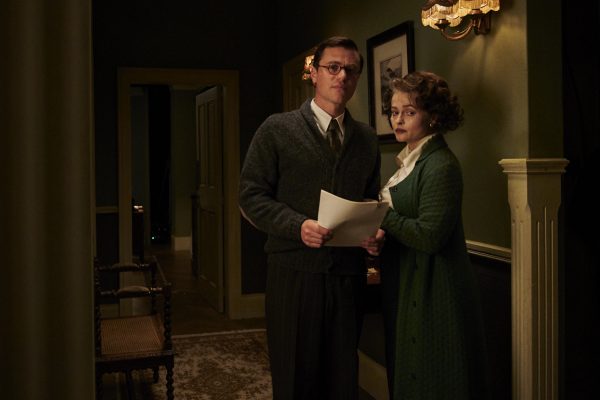
There were no readily available answers to any of this. Yet Nicky and his cohorts saw a need that desperately had to be fulfilled – somehow. So, armed with little more than their convictions, they pressed on in the belief that they could accomplish their goal. And understanding that is crucial to how they got the project under way. Their beliefs were all they had to work with, but these intangible resources proved to be powerful tools for organizing, launching and carrying out this effort. Their belief in their ability to find a way to make things happen would fuel their work, thanks to the conscious creation process, the philosophy that maintains the existence we experience springs forth from these ethereal means. They may not have heard of this school of thought, but, based on what they ultimately accomplished, they certainly understood how to draw on its power to realize their objectives.
Fundamentally speaking, Nicky and his colleagues had tremendous faith in achieving the outcomes they sought, an underlying belief in itself that supported all of the other notions they developed and came to rely on. This foundation thus provided them with the basis to devise the practical means for bringing their plan to life.
For instance, given the restrictions they were up against, Nicky and his peers had to get creative in coming up with innovative ways to amass the tangible resources they required and to generate the public and government support needed to bring their plans to fruition. In particular, this called for them to manifest ways to overcome the limitations they faced, a quality that, of necessity, had to be incorporated into all of their undertakings, as well as the beliefs supporting them. Likewise, they had to draw attention to their efforts, especially back in England, to raise funds and to get the ear of those in officialdom, efforts that called for comparable measures of limitation-liberating creativity.
Considering the scope of the work involved in this, Nicky and the members of the BCRC also had to put considerable stock into their beliefs related to cooperation and collaboration, all aimed at carrying out the practice of co-creation. This was apparent through the joint efforts of the volunteers on the ground in Prague, as well as those who kept the initiative alive in London. This is perhaps best exemplified in the film by the tireless work of Babi in generating attention in the press and twisting the arms of government bureaucrats to get the ball rolling. She was also instrumental in raising much-needed funds for the program and in finding foster parents to care for the children upon their arrival in England. Without this belief in dedicated teamwork, there’s no telling whether the initiative would have turned out as successfully as it did.
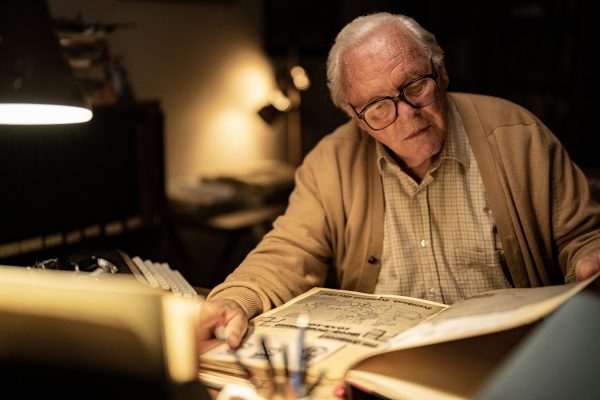
Then there was the oppressive matter of overcoming one’s fears. Those based in Czechoslovakia faced the encroaching and ever-growing threat of the Nazis overrunning them and their efforts, a menacing influence that continually hung over them and left them with a constant sense of uncertainty. Danger was everywhere at that time, even before Germany invaded the country, necessitating the prudent practice of keeping an eye over one’s shoulder. In light of this, it was imperative that those working on the refugees’ behalf develop firm beliefs in courage and determination to get them through their daily routines. Not only was this important to keep them focused on and committed to their work, but it was also essential to prevent their efforts from falling through. As a form of belief in itself, fear can undermine one’s manifestation plans, and, under the conditions depicted here, that could have had the potential to affect the volunteers both individually and in their collective undertakings, in each case with potentially disastrous consequences.
Fortunately, Nicky and his colleagues were able to come up with the right mix of beliefs, intents and actions to attain the results that they did. And their impact was reflected not only in the lives of the 669 children they saved at the time, but also years later in the families that they would go on to raise in the safety of the UK, a number estimated at approximately 6,000 refugees and their descendants. As a result of this, Nicky accomplished more than he may have realized – and had nothing to feel guilty about. He believed in what he wanted to do, and he did it.
Copyright © 2024, by Brent Marchant. All rights reserved.




Leave A Comment